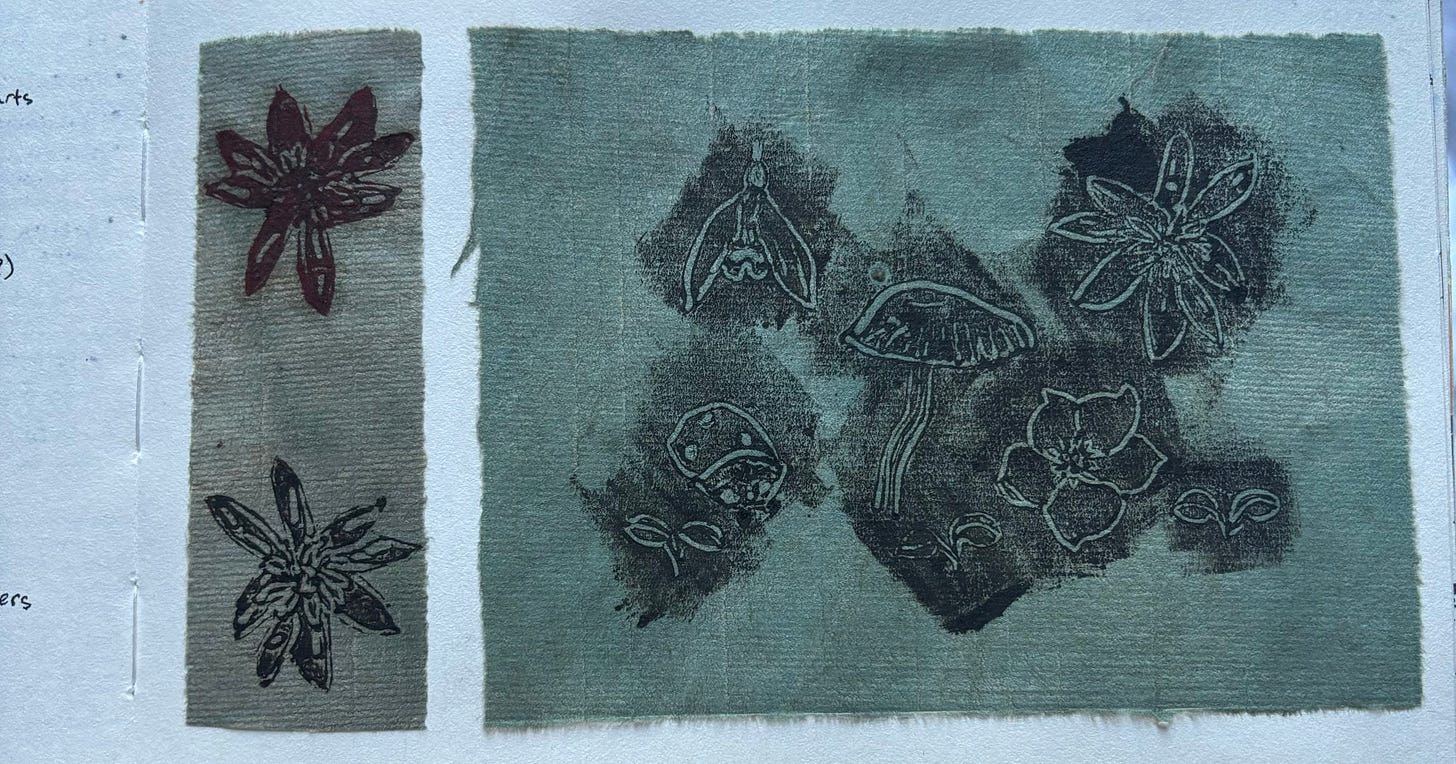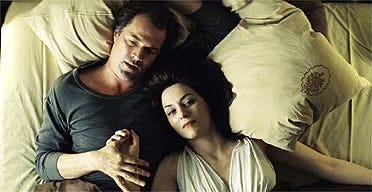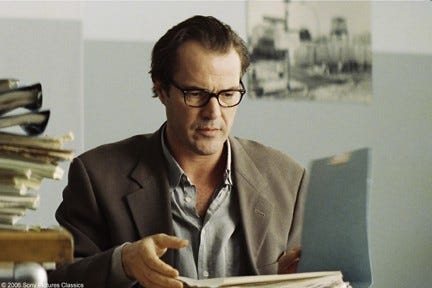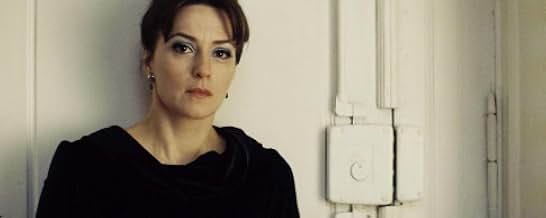Was it better when we owned culture?
DVD nostalgia + anti-techno-capitalism
As I watched The Lives Of Others last week, next to my sleeping mother, I thought how much the last 15 years of techno-capitalism have taken from us.
The film is one of my favourites. It was purchased, like much of my collection, between 2007 and 2010, when I lived within an hour’s walk of central London, and used to meet a friend in the HMV in Piccadilly’s Circus’ Trocadero which was open until midnight. My friend liked fantasy; my section was international cinema. We went often, staying an hour or more, searching for dreamed-of bargains, buying 2 or perhaps 3 DVDs each. I used to know a lot about international cinema—what had just come out; what, that year, had won the Prix D’Or. Now? I have no idea.
The Lives of Others is a stylish piece of cinema, everything about it thoughtful; I even like the sound recording. But the story is especially moving, following a loyal-to-the-cause Stasi agent who discovers his own surprising softness when tasked with surveilling an artist couple—a playwright and actress—whose tender love, moving art, and great humanity, move him so much that he fakes monitoring reports to protect them from arrest.
Georg Dreyman’s and Christa-Maria Sieland’s apartment is full of books; Georg’s desk is piled with them. A scene that opens with him asleep on the bed, a book on his chest, I found oddly reminiscent—I sighed, thinking how lovely that would be, to have the time to fall asleep, to not set an alarm, to not race through a book scared of the experience being ruined by an emailed interruption; my phone screen lighting up; another working day that doesn’t end until I sleep. Everything that seems to stand in the way of me falling asleep with a book on my chest is economic, but tech is present here, enmeshed with the economics of modern life. I am always gettable, and moreso, because I use my phone for my social as well as working life; checking for a friend’s reply inevitably leads to a late-night WhatsApped work missive that plagues the mind. I live in a world where those made more rich by tech make the cost of living too high for those still here with our hammers and chisels, still creating in analogue.
Georg plays the piano. Maria puts on a record. They own books of great playwrights that they leaf through and there is sheet music piled on the grand. Two of Georg’s friends get together—in real life, not on Zoom—to workshop an article, written by Georg. They seem able to refer to a vast amount of knowledge when working; it reminded me of writing with all my favourite books on a shelf in front of my desk, selecting from my vast catalogue of music on CD and vinyl, or my collection of award-winning cinema—which now has to be stored away somewhere because I don’t have enough space to keep it out, nor, anymore, a DVD player (my 2006 Apple Laptop could play and burn DVDs for the same price as today’s MacBook Pro).
I cried, watching the film. I remembered that it was my favourite film, and I only hadn’t seen it in so long because I had lost the DVD, could not find it on a streaming service, did not feel I could purchase it because the DVD is now £25 instead of the £7 I originally paid for it. Time and inaccessibility made me forget how beautiful it was; I assumed I had been exaggerating my feelings towards it. I’m only watching it now because it was £1 in a charity shop in Dalston.
Books, DVDs, cinema, music, magazines which might inform us about culture—all are more expensive than they were and harder to find. Plus, culture is an addition to bills one must pay (legally, as much as literally). My rent is twice what it was for the same sized room in the same neighbourhood. Life (food, bills, etc) in 2025 is at least a third more expensive than life in 2015. Yet, I buy the same food; I do the same things. I’m sure this is true for everyone.
The only thing I don’t do as much is buy culture. I don’t go to the cinema anymore. It’s much more expensive than it was, even at the independents. I don’t buy DVDs any more. Where would I browse? Hardbacks are £20—a shameful figure if any of us in the literary world want our work to be accessible. For me, it means I buy new books in order to keep up with my industry but, honestly, I can’t buy enough to stay on top of things, and I rarely if ever purchase music or film; art, not at all. 90% of what I own of culture I bought before I was 25. No wonder we’re all sticking to our algorithms, slaying in our own lanes—exploring outside of our core or established interests is more expensive than it used to be.
Now, Spotify tells us what to listen to, Instagram has replaced magazines, and Netflix is on our phones. But we don’t get to keep any of this culture, and as a result the film industry is falling apart, musicians make less than they ever did, and artist pay has collapsed. When I, then chair of the Equity Young Members’ Committee, and my fellow committee member Karina Cornell campaigned successfully for a Low Pay/No Pay Working Committee at Equity, the first question asked in the working party (by an older, established practitioner WP member) was, but who would work for free? In 2025, what writer, musician, actor, journalist hasn’t been asked to work for free?
I remember what it was like to have everything to hand. To glance at my bookshelf and realise where the one I was writing sat tonally. To put on the cutting edge of contemporary classical music and type a novel to the soaring of strings. To not have to get up to change the music or to skip an advert or an annoyingly upbeat track. To only have to change a CD once an hour. To watch an independent film over and over again and not just in the month it’s on Mubi. To remember all my favourite books and CDs and films because I had them on my shelves and to feel buoyed by their existence; to be optimistic that I could make something that moved people because I could so easily recount all those times I had been so moved.
We don’t own anything any more. And despite a promise that tech would open the industry for more independent voices, now it seems we are all fed the same things. Who could live through 2024 without hearing about Charli XCX? What other music came out that year? I can’t tell you anything about recent French cinema; at £20 a ticket I can afford cinema-going less than I could as a teenager.
In The Live of Others, Christa’s performance, the couple’s shared moments of music, and Georg’s writing, all touch Stasi officer Gerd Wiesler. The film is a paean to culture. To the connection culture forges between people. To the tenderness and understanding of our common humanity that it provokes. I couldn’t help thinking as I watched Gerd, headphones on in the attic of the couple’s apartment building; about how our data is now collected by Meta and not the Secret Police, and of the US’ deportation of student writers and the world they are creating by worrying artists and thinkers into silence; about how our culture is now in the hands of a few rich men. And what is in our hands? Nothing.
Every one of us used to play more of a part in culture. We used to be curators, we used to collage because we used to buy (affordable) magazines, we used to DJ in our bedrooms, we used to read broadly, we used to support each other and not large corporations and in doing so forge connections and understand each other.
My time reading, watching cinema, etcetera, is truthfully replaced by the time I spend on my phone. I don’t hate Instagram, but I don’t feel moved like I felt watching my favourite film. I don’t feel tender when I throw my phone down, like I do putting away this DVD. Instead, I feel agitated, unable to grasp and hold onto ideas, unable to be at peace. The gates are open to the flood, but no culture from my phone stays in my room. Any virtual culture is not tactile, has no place, is not solid, like me. Watching the movie, I felt lonely for books, disconnected for my records. No wonder. I used to live surrounded by the art, and the lives, of others.
IMBIBING
Deep Cuts… by Holly Brickley… it’s so good I don’t want to finish it, but it continues to sound a little nutty when I describe why I like it: “well, they’re hanging out… it’s Seattle, and I imagine they wear cardigans… there’s a love story but I don’t care what happens…”
…this week’s Offline episode had a segment the “Gen Z lifestyle supplement” (AI) which also talked about the “millennial lifestyle supplement” which, previously unbeknownst to me, was the cheapness of Uber, Doordash, Classpass, and various delivery companies, which took advantage of low interest rates to borrow money and provide services at less than cost to beat out competitors and own the market. The millennial lifestyle supplement was always designed to go away, and the Gen Z lifestyle supplement will too… Currently AI is mostly free to use at the cost of billions. The guys discussed this Atlantic article by Lila Shroff which wonders what will happen when AI services start charging…
…my friend H and I went to a feminist lecture night called Sophia. The band Stealing Sheep was amazing. Their music was so good and their act was cool but hilarious, like something I did in the 90s, aged 10, but with serious faces. It was a beautiful return to childhood and they reminded me of the Spice Girls. The narrative of the night however was pretty confused, and when we realised it had been put on by a magazine, that seemed to make sense. It wasn’t grassrootsy enough for us, and the ideas were pretty mainstream even if they were about AI…
…luckily I then attended one of many queer craft nights and things picked up. There’s nothing like cutting and pasting with genuinely kind people…
…except nature in the rural wilds, which obviously is doing it’s level best this month to impress, with forget me nots, Herb Robert, Lesser Campion, and apple tree blossom all in flower, so I’m also watching bees.
Happy May to all!
Abby xo







Yes! (Both to answer the title, and to all of what you've said!) I know I need to at least thin out my physical media collection/hoard, but it's so hard to bring myself to do it, even though I keep buying more so often. 😆
And thanks for reminding me about Lives of Others, it's been sat on my shelf untouched for far too long so I'll definitely need to rewatch it myself soon, too.